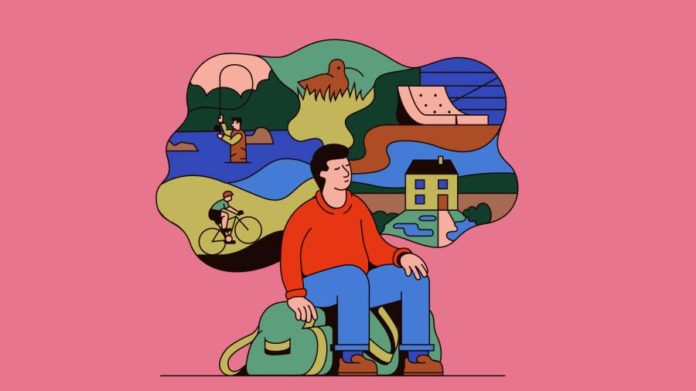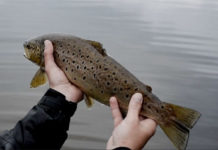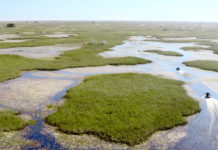FT Magazine updates
Sign up to myFT Daily Digest to be the first to know about FT Magazine news.
It started to hit as we turned north and down the steep hill into Derbyshire’s Goyt Valley. The evening was already getting dark. A short-eared owl lunged into the beams, beat its wings and disappeared into the night.
My kids and I had prowled these hills watching for owls dozens of times. Now, on my last night in Buxton, the English spa town just over the hill that had been our home for the past 14 years, came a brief flutter of serendipity.
I have lived in and left behind many places, from Winnipeg on the vast Canadian prairie to London’s Herne Hill to our dvor on the Moika river in St Petersburg. I moved across the Atlantic as a child four times, each one a wrench from friends and familiarity.
When the UK’s then-prime minister Theresa May talked of “citizens of nowhere” a few years ago, I felt the curse of the peripatetic — that old sense of not really belonging — all over again.
But I’ve never felt sadder leaving a place than when we pulled out of Buxton three weeks ago, the first step on yet another transatlantic move, as my family and I head for New York.
“One always begins to forgive a place as soon as it’s left behind,” says Little Dorrit’s Mr Meagles. And boy, do I have some forgiving to do.
It’s fashionable again these days to value the English countryside. But my affection for England’s Peak District took a while to develop. Over more than a decade in Buxton, there wasn’t a month that passed when I didn’t dream of a life somewhere warmer, with better restaurants, more people and where we weren’t such obvious outsiders.
“People like you are OK,” an elderly neighbour told me once, while I was mending her fence. “We don’t mind you living here — people from Canada or Australia or New Zealand. It’s the others.”
She was explaining Brexit to me and maybe why parts of the English countryside remain so white. By the time of the vote, we had been in Buxton almost a decade.
My London-born children spoke with broad Derbyshire accents. My Anglo‑Canadian wife had been in the UK for almost all her adult life. I was born in Manchester, just 45 minutes away. But to the locals we remained outsiders. The acceptable kind, but outsiders nonetheless.
And the weather. Snow once stopped a cricket match in Buxton in June. Weeks went by without sunshine. I fought a bitter war against the elements, digging trenches in my back garden to lay underground pipes I vainly hoped could drain my own personal swamp.
On the wall in my garden office I hung a light box to beam happiness while I worked and stave off seasonal depression. I popped industrial quantities of vitamin D tablets.
And then, something changed. In me, not the weather.
Maybe it was the shocking discovery, 10 years in, that I’d lived in Buxton longer than anywhere else. And a house with space, in a town surrounded by a national park, was a good place to see out a global health crisis.
A boy used to wide open blue prairie skies and colossal Canadian landscapes became a man fascinated by English fauna and flora, the Peak District’s tight valleys. Fly fishing impossible stretches of the Manifold river, amid meadows of wildflowers, it was hard to believe you were in one of the world’s most visited parks.
My affinity for the landscape was no Levin-mowing-the-fields-in-Anna-Karenina stuff. I lived in a cement-brick house on a suburban cul-de-sac, not Chatsworth. Still, after cycling thousands of miles along Derbyshire lanes I knew the topography of Dark and White Peak, the park’s two distinct regions — and where to stop for cake.
A Russian custom — prisest’ na dorozhku — involves sitting on your luggage for a few minutes before you leave a place to reflect on the journey ahead. So on the Sunday night I left Buxton, I sat on a lumpy duffel bag, with my son’s skateboard poking into my backside.
I thought about everything we would be leaving behind. A sodden back garden. The posses of weed-smoking provincial teenagers. The beloved Goyt Valley, where the dog chased balls, curlews nested on the tops and scoundrels fly-tipped defunct mattresses in the middle of the night. Our first neighbours who became steadfast friends.
By accident, a family of wandering outsiders with funny accents had made a home in a small spa town in the damp English hills — and learnt to belong. Now we were dumping it to move, mid-pandemic, to the city that never sleeps.
After the owl, my wife and I drove on for the last time up out of the Goyt Valley, heading for the Cat & Fiddle pass that would take us to Cheshire, on to Manchester airport, and eventually to New York. Two hares darted out in front of the car and scurried into the bracken. Then it began to rain.
Derek Brower is the FT’s US energy editor. derek.brower@ft.com
Simon Kuper is away
Follow @FTMag on Twitter to find out about our latest stories first.
Credit: Source link






























